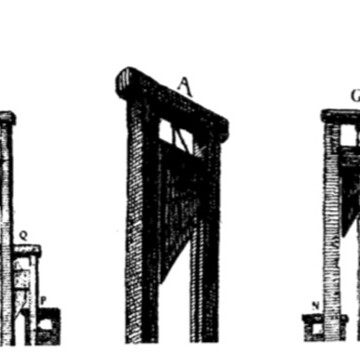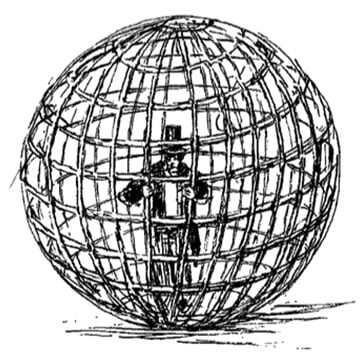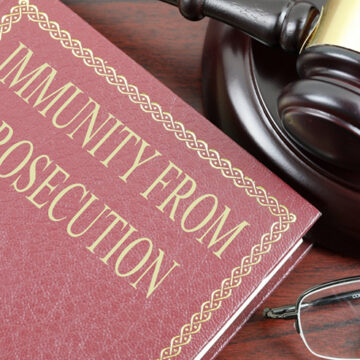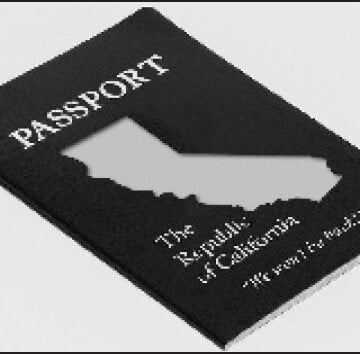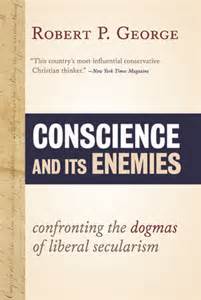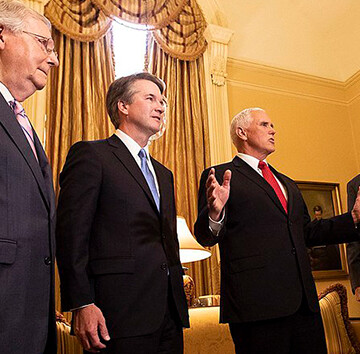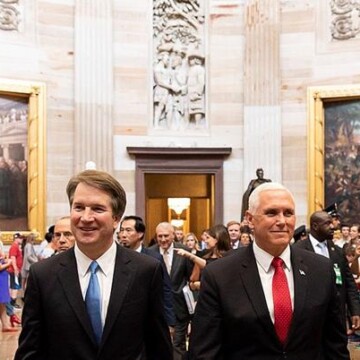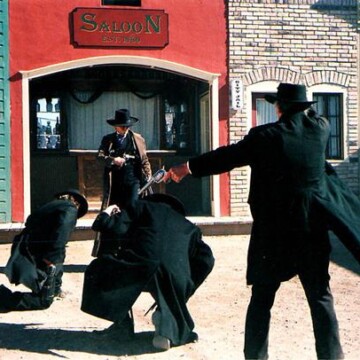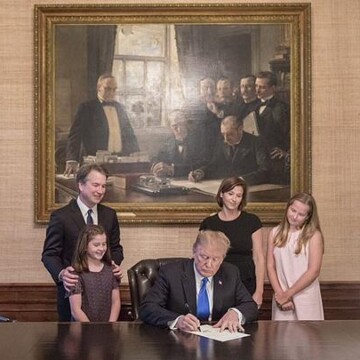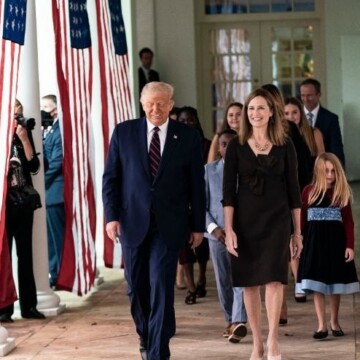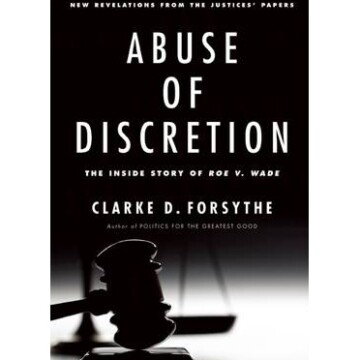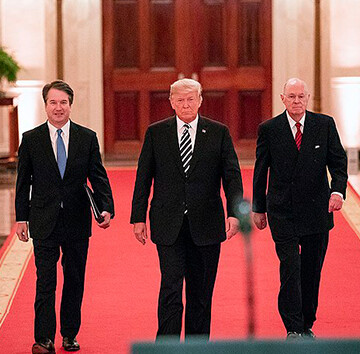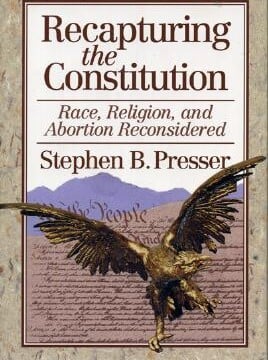On October 15, 1905, Burton K. Wheeler stepped off a train at the Northern Pacific depot in Butte, Montana, thinking that he had seen more of the West than Lewis and Clark but wondering if his luck had run out. After looking up every lawyer in town (Wheeler had graduated from the University of Michigan...
2050 search results for: Supreme%252525252525252525252525252BCourt
Homeschooling: Fortifying the Family Castle
Amid the disasters happening in America today, there’s some excellent news. Homeschooling has won a solid place among roughly 1.5 million children and is mostly protected by law. It has become a refuge for families sick of their local public schools and the many copycat private and parochial schools. Even where decent private and parochial...
The Legacy of 1789
One man, one vote. It seems such an obvious, such a simple principle. What can possibly hinder its implementation in South Africa, where blacks are barred from the exercise of citizenship rights, or Israel, where West Bank Palestinian children take to the streets demanding self-government and civil rights, or New York City, where the Board...
Free Speech in the Crosshairs
The biggest issue on the ballot this November is free speech.
The Wall: Moral and Good
President Donald Trump’s predecessors have circumvented Congress before on issues the legislative branch had tried to stop. They have redirected resources appropriated by lawmakers. They have resorted to the same National Emergencies Act that Trump is invoking in order to build the Wall along the country’s southern border. None of their actions triggered a reaction...
Forgotten Strippers
In 1994, the Republicans, for the first time in 40 years, took control of both Houses of Congress. In 2000, after some controversy, the GOP secured the presidency. Now, they have lost both houses and look to be well on their way to losing the presidency in 2008. Parties lose when they don’t give their...
Human Rights and Self-Government
In the United States, the federal system of government is undergoing profound changes that compel students of American politics to rethink traditional ideas about national identity. Questions such as: “What does it mean to be a citizen of the United States?” and “What are the duties and privileges of U.S. citizenship?” and “In what manner...
On the Fourth Amendment
In his December essay, “The Mark of the Beast,” Larry Pratt implies that those who oppose unconstitutional searches and seizures by the government should be in favor of the exclusionary rule. But such a rule, whereby probative (i.e., valid) evidence may not be introduced in court if it was obtained in violation of the Fourth...
Allowing Affirmative Action
The Supreme Court’s ruling allowing affirmative action at the University of Michigan but striking down the school’s system of racial quotas led Linda Chavez, in a syndicated column entitled “Supreme Mischief and Racism” (June 26), to warn against desecrating a sacred vision. Forty years ago this August, “the Rev. Martin Luther King gave a speech...
The Trump Indictment May Saddle the GOP With a Loser
Trump's rise in the 2024 election polls after his indictment plays into Democrat hands, potentially saddling Republicans with a candidate who cannot win in 2024 because he cannot acknowledge his past mistakes.
Robert Bork, RIP
Today brings the sad news that Robert Bork has passed away. The sadder news for America, though, came in 1987, when the Senate unjustly rejected his nomination to the Supreme Court. There is no doubt that, had Bork been confirmed, Roe v Wade would have been overturned in 1992 when the Supreme Court decided Planned Parenthood v...
Politics Make Strange Bedfellows
Politics, they say, makes strange bedfellows, but that’s nothing compared to constitutional amendment. A few weeks ago, I found myself testifying before the Constitution Subcommittee of the House Judiciary Committee, and on the panel with me, testifying in favor of the Flag Protection Amendment, were a former Miss America, a holocaust survivor, an African-American bishop,...
All Three Branches of Government Need Legal Immunity
Presidential immunity, judicial immunity, and legislative immunity are essential to a system that allocates power through a democratic process.
Turmoil in Egypt
Last Thursday’s decision by the Supreme Constitutional Court in Cairo that Egypt’s parliament was elected unconstitutionally and should be disbanded is a direct challenge to the Islamists who dominate the legislature. The scene is set for a new political crisis in the Arab world’s most populous nation. It is obvious that the Supreme Council...
The Most Desirable Option: Reeducating for Secession
In this age when the foundational idea of American federalism has become all but defunct and the concept of states’ rights still has the whiff of Jim Crow about it, it is difficult to see how either individual states or regions can have any significant influence on the federal government—even if they had legislatures interested,...
A Highly Acceptable Man
Conscience and its Enemies is a collection of Robert George’s recent writings for a general audience. In addition to the title topic, it includes chapters on the defense of natural marriage, the protection of life from conception to natural death, the nature of moral reasoning, and the need for limited government. Overall, the pieces in...
As Cold as Charity
Did anybody notice when Catholic Christianity ceased to be a religion in the United States? Not when it stopped being a popular or even a permissible religion, but when it became simply a nonreligion? I ask this because a recent court decision in California threatens to launch a legal revolution, in a way that would...
The Constitution, R.I.P.
On July 22 of this year, the Washington Times published, as the weekly installment of its “Civil War” section, a long article by a gentleman named Mackubin Thomas Owens, described as “professor of strategy and force planning” at the Naval War College in Newport, Rhode Island, under the headline, “Secession’s apologists gut Constitution, history.” The...
Liberal Tolerance on Display After Reversal of Roe v. Wade
After the Roe reversal protests erupted all across the country, with the largest in New York, Chicago, and Los Angeles—cities in states with virtually zero probability that their lawmakers will pass laws restricting abortion.
Trading Liberty for Security
Attacks on constitutional liberties, including the erosion of due-process protections for the rights to life, liberty, and property, tend to soar in wartime. The most egregious assaults have occurred during the Civil War, the two world wars, and, most recently, in the so-called War on Terror. Courageous individuals spoke out against the abuses during and...
The Teaching Evolution
The teaching evolution is back in the news, in a case that the media—with their usual sensationalism—are comparing to the Scopes trial of 75 years ago. On August 10, Steven Green, legal director of the Washington-based Americans United for Separation of Church and State, sent a letter to the Kansas State Board of Education, threatening...
Sotomayor and the Last of the WASPS
If Judge Sonia Sotomayor is confirmed, the U.S. Supreme Court will consist of six Catholics, two Jews and precisely one white Anglo-Saxon Protestant in the form of Justice John Paul Stevens, who is 89 years old and boasts of two important WASP insignia: inherited wealth and a bow tie. He also thinks that Shakespeare’s plays...
Books and Lovers
Back in 1839, an Englishman by the name of Alexander Walker wrote a manual by the name of Woman, in which he quoted Hume: “Among the inferior creatures, nature herself, being the supreme legislator, prescribes all the laws which regulate their marriages, and varies those laws according to the different circumstances of the creature.” So...
Line Item Veto Act
The Line Item Veto Act has been struck down by the Supreme Court. As I predicted in the February issue of Chronicles (“Reining in the Feds“), the Court (in Clinton v. City of New York) declared that the act violated the Constitution’s Presentment Clause, which commands that a bill passing both the House and the...
“Empathy” And The Court
The President wants an empathetic jurist to replace David Souter on the U.S. Supreme Court. He will likely get such a one. What the country will get in that event is one more senator or cabinet member—as straw boss, head knocker, high and mighty arbiter of high and mighty matters. A sort of modern Roman...
Michigan’s Race Factor
The U.S. Supreme Court’s June 23 decision striking down the University of Michigan’s race-based undergraduate admissions policy ended a decade-long struggle started by university administrators and finished by conservative legislators and their grassroots supporters. On April 23, 1997, Michigan State Rep. David Jaye, a paleoconservative Republican from suburban Macomb County, sponsored an amendment to the...
Panic on the Left
President Bush’s nomination of Judge John Roberts to the U.S. Supreme Court has caused something just a little short of panic on the left. The day after the announcement, the New York Times told its readers that Roberts and his wife, Jane Sullivan Roberts, are “devout Catholics.” The following day, a front-page headline proclaimed that...
Thanks, Christine
The ugliness displayed by the media and Democrats during the fight over Brett Kavanaugh’s nomination to the U.S. Supreme Court is yet another indicator of how far we have come from Hamilton’s conception of the federal judiciary as “the least dangerous branch.” Kavanaugh was nominated to replace Anthony Kennedy, who used his perch on the...
Neoconservative Choicers
Polly Williams, a black Democrat in Wisconsin, has been hailed by the Wall Street Journal, Reason, and other neoconservative organs for her school choice legislation. And the Wisconsin Supreme Court has approved it: underclass public school students can now get more welfare, in this case free tuition, at “nonsectarian” private schools. Neoconservative choicers hail the...
On Sovereigntists
Sean Scallon’s analysis of Quebec sovereignty (Cultural Revolutions, June) misses the point. In Reference on certain Questions concerning the Secession of Quebec from Canada (1998), the Supreme Court of Canada held that the people of Quebec have a constitutional right to press for independence by all means allowed in parliamentary democracy; that the people of...
Flies in the Ointment
Supporters of school vouchers are jumping for joy over a Wisconsin Supreme Court verdict, handed down this summer, that permits tax dollars to be used at religious schools. They hope the decision will be the basis of a vast expansion of vouchers (four other states are debating this same question), eventually leading to a federal...
The Late Hit on Judge Kavanaugh
Upon the memory and truthfulness of Christine Blasey Ford hangs the Supreme Court nomination of Judge Brett Kavanaugh, his reputation, and possibly his career on the nation’s second highest court. And much more. If Kavanaugh is voted down or forced to withdraw, the Republican Party and conservative movement could lose their last best hope for...
In Focus – Say A Little Prayer
George Goldberg; Reconstructing America; Wm. B. Eedernabs; Grand Rapids, MI. Many years ago Leo Strauss remarked that the Supreme Court is more likely to defer to the contentions of social science than to the Ten Commandments as the words of the living God. Strauss was, of course, basing his observation on the use of social...
The Huge Stakes of Thursday’s Confrontations
Thursday is shaping up to be the Trump presidency’s “Gunfight at O.K. Corral.” That day, the fates of Supreme Court nominee Brett Kavanaugh and Deputy Attorney General Rod Rosenstein, and much else, may be decided. The New York Times report that Rosenstein, sarcastically or seriously in May 2017, talked of wearing a wire into the...
USA becomes military dictatorship
With little fanfare, in the past week the United States officially became a military dictatorship. The U.S. Supreme Court declined to hear the appeal of a suit brought against the 2012 National Defense Authorization Act that allowed indefinite detention of U.S. citizens. That means the military now can, at any time, “disappear” you, even if...
Killing Off Limited Government
The federal government cannot ban criminals from bringing guns to schools, but it can arrest a person for growing marijuana at home to ease nausea from chemotherapy. Such is the state of Supreme Court jurisprudence. The intellectual case for the “War on Drugs” faded long ago. Criminalization of what is primarily a moral and health...
A Landmark Decision
The Supreme Court, in its landmark 6-3 decision in Atkins v. Virginia, has taken the penultimate step toward total elimination of the death penalty in the United States. The facts of the case are clear: Daryl Atkins and an accomplice plotted to rob a customer in a convenience store; abducting their victim, they took him...
Dress Rehearsal for Impeachment
Judge Brett Kavanaugh’s nomination to the Supreme Court was approved on an 11-10 party-line vote Friday in the Senate Judiciary Committee. Yet his confirmation is not assured. Sen. Jeff Flake, Republican of Arizona, has demanded and gotten as the price of his vote on the floor, a weeklong delay. And the GOP Senate has agreed...
Federalizing Funerals
The Westboro Baptist Church and its bizarre octogenarian pastor, Fred Phelps, won a major victory at the Supreme Court in March. In an 8-1 decision, the Court reversed a multimillion-dollar award to the family of Marine L.Cpl. Matthew Snyder, who was killed while serving in Iraq. In 2006, Westboro members showed up outside the fallen...
Will Justice Amy Star in ‘The Five’?
By nominating Federal Judge Amy Coney Barrett to the Supreme Court, Donald Trump kept his word, and more than that. Should she be confirmed, he will have made history. Even his enemies would have to concede that Trump triumphed where his Republican predecessors—even Ronald Reagan, who filled three court vacancies—fell short. Trump’s achievement—victory in the...
The Fruits of Fraud
The worst thing about the U.S. Supreme Court’s 1973 legalization of abortion in all 50 states and U.S. territories has not been the 55 million—and counting—dead babies, as horrible as that has been, but the damage it has caused to the rule of law, specifically the U.S. Constitution. In his dissent, Justice Byron White branded...
On a Supreme Court Appointment
Chronicles carries informed and very interesting articles. You have literate and intelligent authors, and I look forward anxiously to the arrival of each issue. I want to compliment you particularly on the article on the judiciary by William F. Harvey (“An Appointment to the Supreme Court,” Vital Signs, June). It is a tragedy that Judge...
Sharpening the Swords
On June 25, one day before the U.S. Supreme Court declared that a man can marry a man and a woman can marry a woman, the Washington Post published an op-ed by Louise Melling, the deputy legal director of the American Civil Liberties Union. Miss Melling’s announcement that the ACLU would no longer support the...
Kavanaugh in Retrospect
Hours after the U.S. Senate voted to confirm Judge Kavanaugh as the 114th Supreme Court Justice, a commentator on FOX News remarked that no winners had emerged from the legislative ordeal. He was wrong, of course. Kavanaugh himself was the primary winner, having survived the fury of Hell itself to prevail over the persons and...
Forever 1965
In Shelby County v. Holder, the Supreme Court struck down the coverage formula of the Voting Rights Act of 1965 (VRA). Under the formula, states or their political subdivisions are “covered jurisdictions” if they maintained in the 1960’s and early 70’s tests or devices (e.g., a literacy test or moral character requirement) as a prerequisite...
57 million babies and counting, RIP
Something died in America 42 years ago today. That’s when the U.S. Supreme Court handed down its 1973 edict, Roe v. Wade, forcing all 50 states to almost completely legalize abortion on demand – even those states that already had legalized it. About 57 million babies have been killed since. But something more died: Maybe...
A Supreme Disqualification
In June, the U.S. Supreme Court once again trampled on the rights of the states. The media took little notice. Since it became a state in 1912, Arizona has had a citizenship requirement for voters. In 2004, the people of the state, in an effort to combat voter fraud, enacted Proposition 200. This initiative requires...
Constitutional Disorder
The Supreme Court, as Stephen Presser laments, has wandered far off course; increasingly its Justices have taken to reading their own preferences and prejudices into the Constitution, thereby abandoning their solemn obligation to act as its guardians by interpreting its provisions in accordance with the basic values and intentions of the Framers. What is more,...
Freedom or Tyranny?—June 2006
PERSPECTIVE Imposing Utopiaby Thomas FlemingConcealing despotism. VIEWS Cincinnatus, Call the Office!by Clyde WilsonPublic service versus the American System. Judging for the Peopleby Stephen B. PresserDemocracy, the Supreme Court, and the Constitution. Democracy: The Enlightened Wayby Claude PolinThe your-fault society. REVIEWS A Government We Deserveby H.A. Scott Trask Sean Wilentz: The Rise of Democracy: Jefferson to...
Kim Davis vs. Judicial Tyranny
“If the law supposes that, the law is a ass—a idiot.” Charles Dickens gave that line to Mr. Bumble in “Oliver Twist.” And it sums up the judgment of Rowan County Clerk Kim Davis about the Supreme Court’s Obergefell decision, which said the 14th Amendment guarantees same-sex couples the right to marry. Davis refused to...

